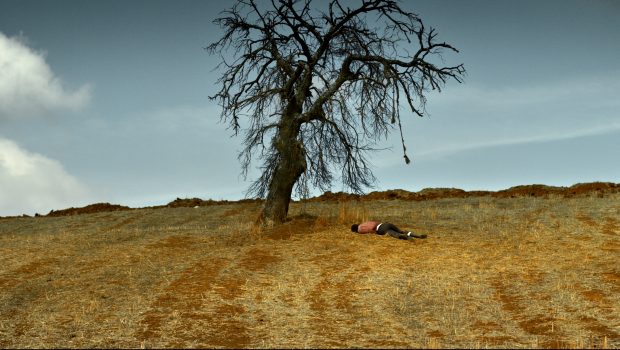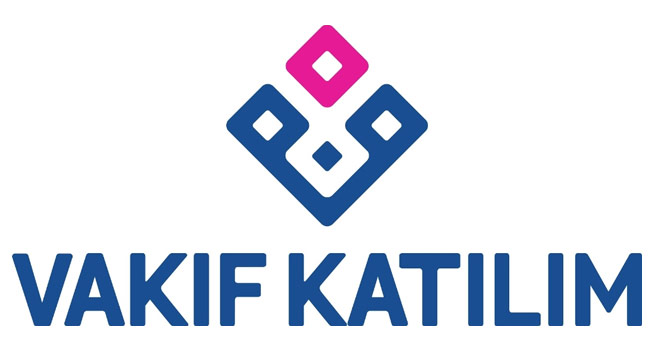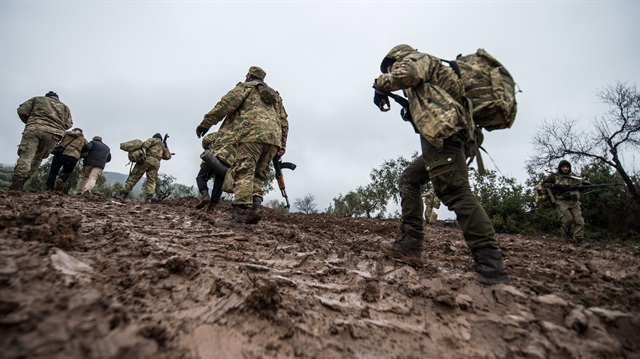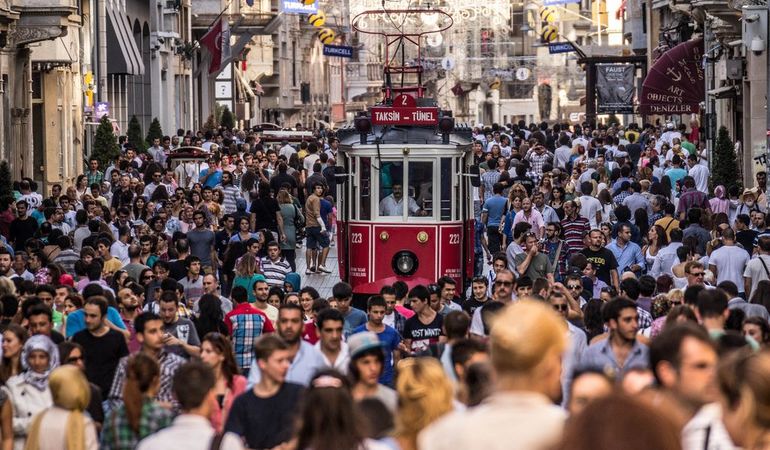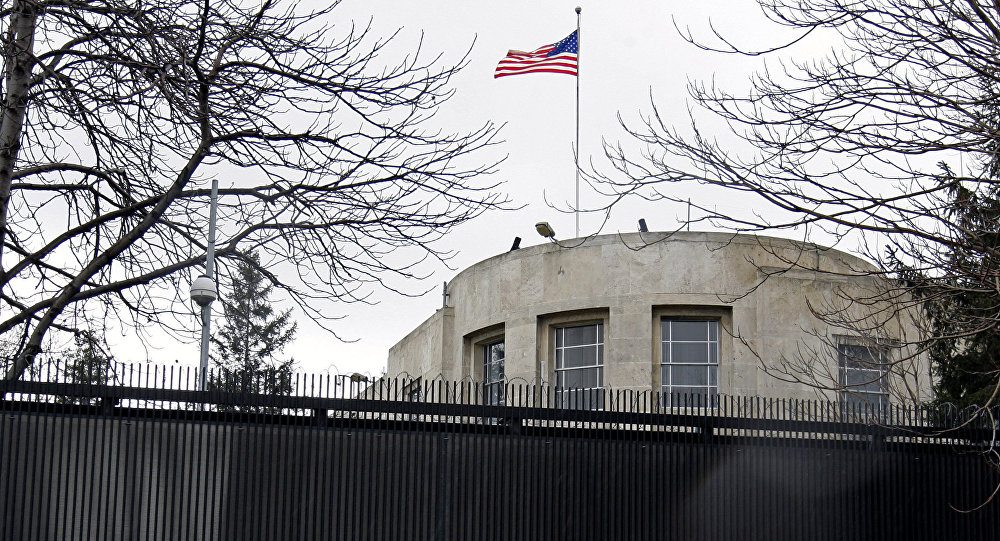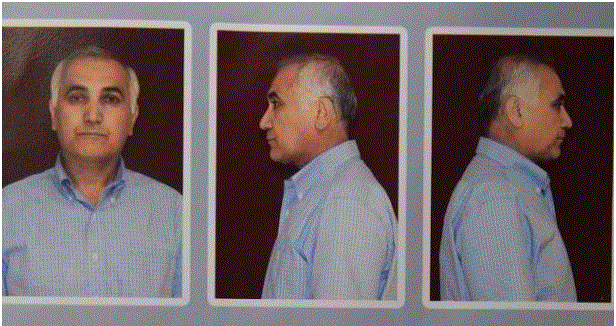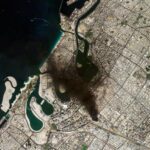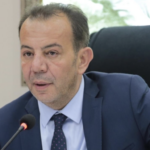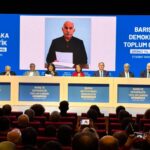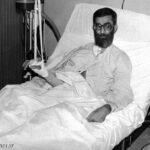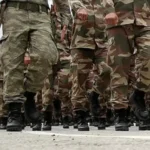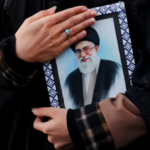For some readers, the Greater Middle East Project may now be no more than a dimly-remembered name emerging from memory’s misty recesses. For young people, it could be an entirely new issue. Ten years ago, however, the always-breathless rhetoric surrounding Turkish-US relations was all about the Greater Middle East Project, all the time. Thanks to George W. Bush, to his need to find justification for the Iraq invasion once no WMDs turned up, and to his pundit and press toadies, Turkey and the AKP (through no initiative of their own) were rolled out as shining examples of democracy that U.S. intervention would create for the entire Eastern Mediterranean. (1)
In my previous Serbestiyet essay, I recalled some of the press and think-tank commentary on the AKP from 2004-2007. While composing that essay, I rummaged around in my old notebooks to examine what I had jotted down in November 2002 concerning the AKP’s initial election victory. I knew that both the domestic and international press narrative concerning the AKP had been extremely negative from the beginning, and that claims asserting that the AKP had once been warmly received into the Western embrace as the role model for the Muslim world were based on nothing more than the rhetoric which surrounded the Bush Administration’s Greater Middle East Project, devised ex post facto as a fig leaf to cover the bald lies on which the Bush Administration had constructed its case for the invasion of Iraq. I wanted to remind myself of exactly what that time period felt like.
First, I should mention why it was that I was writing down ideas about the AKP’s November 2002 election victory in the first place. After the 11 September 2001 attacks against the World Trade Center in New York, I felt extremely disturbed by the rampant anti-Muslim bigotry and racism that began to flow from the U.S. press. Because I had already been living in Turkey for several years at that point, and had previously lived in Egypt, I felt a responsibility to publish what I knew of both Turkey and the Muslim world as my own small contribution towards countering the wave of hatred coming from the U.S. media.
In the months after 11 September 2001, I made contact with Danny Schechter (2), at that time already a well-know figure in the U.S. alternative media. Schechter and his “comrade in arms” Rory O’Connor had established Mediachannel.com and Globalvision News Network as efforts to analyze the mainstream U.S. press, and to provide an outlet for news and information which did not penetrate that mainstream media. Schechter, with his characteristic generosity and curiosity, encouraged me to write my perspective from Istanbul, and he included a number of things that I wrote in his daily news blog. By the last months of 2002, Schechter had decided to make me the “Middle East Editor” for a new feature, and I spent the first six months of 2003 compiling daily news summaries from Turkey and other regional media outlets.
For that reason, I had cause to write up the AKP’s 3 November 2002 election victory, and this is why I have now found more than two pages of items that I had written in an old notebook; apparently that information was intended for Schechter, but I don’t believe that it was ever published. So, below is the first page of notes, verbatim, that I wrote both on 3 November 2003 and in its immediate aftermath; the kind of rhetoric that I saw in the international press, and that I intended to argue with, is clearly understandable from what I focused on (small changes are indicated by brackets):
“‘Don’t Expect an Iran’
— Erdoğan only got 35% of the vote
— Most voters are looking for something new – new politicians, new hope, rather than shari’a law
— The AK Party now has to face a [state] inquiry into its organization and electioneering…
— CNN’s coverage is too dramatic and a little bit fear-mongering – Erdoğan’s victory is not a ‘political earthquake,’ it is the result of people who are fed up with traditional Turkish politics voting for change
— the percentage of votes given to the AK Party was almost exactly that [predicted] by the polls
— Erdoğan’s first statement, after his victory was confirmed by early […] results, addressed Turkey’s candidacy for the E.U.; he promised to do what he can to expedite Turkey’s candidacy
— Erdoğan also says he will continue Turkey’s cooperation with the IMF
— Anyone who knows Turkey should not be surprised by the financial markets’ favorable reaction to the AK Party’s victory because they know that Erdoğan did a good job of cleaning up Istanbul’s corruption problems; thus, the hope is that he can also create more favorable and stable market conditions for Turkey than recent past Turkish governments”
In the days before the election, I had also written some notes aimed at criticizing the U.S. press coverage of the election. The “Islamic Threat” was already an essential component of the narrative:
“…The two parties which will most likely dominate the [Turkish] parliament after the election are the CHP and AK Party. The CHP is being portrayed as a ‘Left’ party with ‘Third Way’ proponent… Kemal Derviş as the star candidate/technocrat…. The AK Party is being cast as the feared Islamist nightmare, founded by banned-from-politics- for-life-until-recently Recep Tayyip Erdoğan…
… The AK Party is perceived as the “Islamic Threat,” but citizens of İstanbul know it as the political heir of those who, despite letting religion and politics mix, began cleaning up İstanbul’s governmental corruption and rotting infrastructure mess left behind by those ‘secular’ political parties favored by Western observers.
… So don’t trust what America’s press says about Turkey’s internal politics: the Islamic Party may actually form a positive government; the ‘Leftist’ party may not be so leftist.”
After reading those notes, someone who hasn’t followed the situation as closely as I have for the past sixteen years might ask where I got the impression of the U.S. press that I was criticizing in these notes. That is easy to answer: From the New York Times, as well as other publications like the Los Angeles Times, which had established early presences on the Internet. Even when I moved to Turkey in 1999, I could continue to read the New York Times on-line every day.
For example, examine the NYT coverage of the 2003 Turkish election and its aftermath. Only four days after the AKP’s victory, the NYT featured a story with the fright-headline: “Turkey Waits and Wonders: How Closely Bound to Islam is Election Victor?” (3) That article differs from the articles of the past several years only in that the adjectives chosen to describe Erdoğan are two or three notches less nasty or ominous.
Two months after Erdoğan officially became Prime Minister in March 2003, the NYT published a long analysis of Erdoğan and the new era in Turkish politics, titled “The Erdogan Experiment.” (4) The title betrays the fundamentally sinister manner in which Erdoğan was portrayed by the writer. Even though the author does, at points, try to express some sympathetic perspectives towards Erdoğan, the overall message is unmistakable: the Islamic Threat. The difference between that coverage and the coverage of the past few years is only one of nuances. Even Cengiz Çandar, quoted twice in the article, has retained a similarly condescending attitude towards Erdoğan and the AKP for the past thirteen years.
Thus, my main point bears repeating for clarity: there was never a time over November 2002-2010 when the AKP or Tayyip Erdoğan received unqualified, warm, and genuine support from the Western press in general, or the Western academic and think-tank punditry. It never happened. The George W. Bush Administration did briefly promote the AKP as a part of its Greater Middle East Project, but that project was a repulsive sham from the beginning since it was intended to provide cover for the invasion of Iraq.
This means that all of the bleating about how the AKP “used to be good, then they went bad” is either forgetfulness or prevarication. Prevarication, really, and prevarication embraced for purely political purposes, related to the process that Turkey has experienced since 2007-2008, about the time when Turkey’s secular elites woke up to find their social and economic position challenged. “Once more into the breach, dear friends!” rose the cry from Cihangir, Nişantaşı, Etiler, and… Bodrum. Since then we’ve been living through the proverbial “interesting times.”
NOTES
(1) See my previous essay: “Reminiscences on Bush’s Middle East Democracy Project” (16 July 2015), https://serbestiyet.com/Yazarlar/reminiscences-of-bushs-middle-east-democracy-project-154625. Turkey and the AKP remained cast in that role, of course, only so long as it served a political purpose for Bush and the neo-conservatives. By 2005, prominent neo-conservative writers such as Pollock and Rubin had turned against the AKP, and from that moment on the narrative became even more intense and venomous.
(2) Requiescat in pace. Danny had a deep impact on my life. He was a truly warm soul, a real mensch, and an activist who never forgot his working-class roots. I was lucky enough to meet him in person twice, once when I hosted him here in Istanbul. For more information on Danny, see: https://en.wikipedia.org/wiki/Danny_Schechter and the many proud tributes published after his March 2015 death.
(4) http://www.nytimes.com/2003/05/11/magazine/the-erdogan-experiment.html
Yazıyı beğendiysen, patronumuz olur musun?
Evet, çok ciddi bir teklif bu. Patronumuz yok. Sahibimiz kar amacı gütmeyen bir dernek. Bizi okuyorsan, memnunsan ve devam etmesini istiyorsan, artık boş olan patron koltuğuna geçmen lazım.
Serbestiyet; Türkiye'nin gri alanı. Siyah ve beyazlar içinde bu gri alanı korumalıyız. Herkese bir gün gri alanlar lazım olur.





